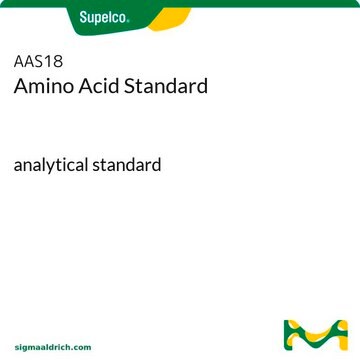62966
L-α-Lysophosphatidylinositol sodium salt from soybean
≥98.0% (TLC)
Synonym(s):
1-Acyl-sn-glycero-3-phospho-(1-D-myo-inositol)
Sign Into View Organizational & Contract Pricing
All Photos(1)
About This Item
Recommended Products
biological source
soybean
Quality Level
Assay
≥98.0% (TLC)
form
powder
impurities
primarily palmitic acid
stearic acid
functional group
phospholipid
lipid type
phosphoglycerides
shipped in
ambient
storage temp.
−20°C
Biochem/physiol Actions
Lysophosphatidylinositol, an endogenous phospholipid, is a novel ligand for the orphan G protein-coupled receptor 55 (GPR55) . Lysophosphatidylinositol promotes RhoA-dependent Ca2+ signaling and NFAT (nuclear factor of activated T cells) activation in human embryonic kidney 293 cells .
Preparation Note
by phospholipase A2-treatment of 3-sn-phosphatidylinositol
Storage Class Code
11 - Combustible Solids
WGK
WGK 3
Flash Point(F)
Not applicable
Flash Point(C)
Not applicable
Personal Protective Equipment
dust mask type N95 (US), Eyeshields, Gloves
Choose from one of the most recent versions:
Already Own This Product?
Find documentation for the products that you have recently purchased in the Document Library.
Customers Also Viewed
Saori Oka et al.
Biochemical and biophysical research communications, 362(4), 928-934 (2007-09-04)
GPR55 is an orphan G protein-coupled receptor. In this study, we explored a possible endogenous ligand for GPR55 using HEK293 cells which expressed GPR55. We found that lysophosphatidylinositol induced rapid phosphorylation of the extracellular signal-regulated kinase in transiently or stably
Christopher M Henstridge et al.
FASEB journal : official publication of the Federation of American Societies for Experimental Biology, 23(1), 183-193 (2008-09-02)
The endogenous phospholipid l-alpha-lysophosphatidylinositol (LPI) was recently identified as a novel ligand for the orphan G protein-coupled receptor 55 (GPR55). In this study we define the downstream signaling pathways activated by LPI in a human embryonic kidney (HEK) 293 cell
Our team of scientists has experience in all areas of research including Life Science, Material Science, Chemical Synthesis, Chromatography, Analytical and many others.
Contact Technical Service









